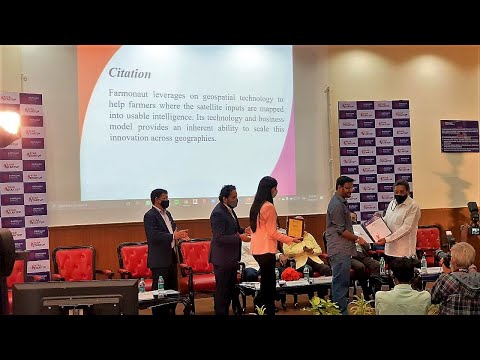Digital Transformation in Finance: 2025 Trends Reveal Slow Progress and Urgent Need for Automation
“Only 13% of companies are fully digitized in finance, revealing slow progress in digital transformation.”
As we delve into the world of finance in 2025, we find ourselves at a critical juncture where digital transformation is no longer a luxury but a necessity. The latest “Finance Trends 2025” report has unveiled startling insights into the current state of financial services digitization, ISO 20022 implementation, and fraud prevention in banking. This comprehensive survey of finance professionals paints a picture of an industry grappling with technological change, yet still falling short of full digitization.

In this blog post, we’ll explore the key findings of the report, analyze the challenges facing the finance sector, and discuss the urgent need for automation and digital solutions. We’ll also examine how industry leaders are leveraging technology to revolutionize their finance operations and stay ahead in an increasingly digital landscape.
The Current State of Digital Transformation in Finance
The “Finance Trends 2025” report, conducted by AccessPay, a prominent bank integration provider, offers a sobering view of the finance sector’s digital progress. Here are some key findings:
- Only 13% of companies report being fully digitized
- 69% of firms are still navigating a blend of manual and digital processes
- Financial services lead in digital efforts, while legal firms lag behind
- 50% of companies prioritize implementing Confirmation of Payee (CoP) or Account Name Verification (ANV) technologies
- 47% focus on automating payments
- 39% are working on adopting cloud technology
These statistics reveal a sector that is aware of the need for digital transformation but is struggling to fully embrace it. The slow progress is particularly concerning given the rapid pace of technological advancement in other industries.
Key Priorities for Finance Transformation
As finance teams navigate the complex landscape of digital transformation, several key priorities have emerged:
- Account Name Verification: With 50% of companies prioritizing CoP or ANV technologies, it’s clear that enhancing payment security is a top concern.
- Payment Automation: Nearly half of the surveyed companies are focusing on automating their payment processes, recognizing the efficiency gains and error reduction that come with automation.
- Cloud Technology Adoption: 39% of firms are prioritizing the move to cloud-based solutions, acknowledging the scalability and flexibility offered by cloud platforms.
Interestingly, while Generative AI (GenAI) is making waves in other sectors, only 15% of respondents in the finance industry consider it a high priority. However, nearly half rank it as a medium priority, suggesting a cautious approach to this emerging technology.
The ISO 20022 Challenge
One of the most pressing issues facing the finance sector is the upcoming implementation of ISO 20022 for CHAPS transactions. This new data format, mandated by the Bank of England starting May 2025, poses significant challenges:
- 26% of respondents were unaware of the new format
- 50% recognized it but had yet to prepare
- All firms will need to update their finance systems and address data gaps
- Corporate transaction capabilities will be affected
The lack of preparedness for ISO 20022 is alarming, given its potential impact on financial operations. Companies that fail to adapt risk disruptions to their transaction capabilities and may fall behind competitors who are better prepared.
Fraud Prevention: A Growing Concern
“Invoice scams are the top fraud concern, yet many firms are unprepared for upcoming ISO 20022 requirements.”
As digital transformation progresses, so do the sophistication of fraud attempts. The report highlights several key concerns in this area:
- 60% of companies identify invoice scams as their top threat
- 53% worry about fraudulent online payments
- 47% are concerned about impersonation fraud
To combat these threats, companies are employing various strategies:
- 72% rely on staff training to recognize fraud
- 58% endorse CoP/ANV technologies
- Financial services firms show a preference for multi-layered fraud prevention strategies

The reliance on staff training, while important, highlights the need for more robust technological solutions to combat increasingly sophisticated fraud attempts.
The Role of Treasury Management Systems
As finance teams grapple with these challenges, treasury management systems (TMS) are emerging as crucial tools for driving efficiency and combating fraud. These systems offer several benefits:
- Centralized management of financial operations
- Enhanced visibility into cash flow and liquidity
- Automated reconciliation processes
- Improved risk management capabilities
By integrating TMS with other finance automation solutions, companies can create a more robust and efficient financial ecosystem.
The Urgent Need for Automation
The slow progress in digital transformation and the looming challenges of ISO 20022 implementation underscore the urgent need for automation in finance. Automation offers numerous benefits:
- Reduced manual errors
- Increased operational efficiency
- Better fraud detection and prevention
- Improved compliance with regulatory requirements
- Enhanced data analysis capabilities
By embracing automation, finance teams can free up valuable time and resources to focus on strategic initiatives and value-added activities.
Digital Transformation Progress in Finance Sector (2025 Forecast)
| Digital Transformation Area | Current Adoption Rate (2023) | Projected Adoption Rate (2025) | Key Challenges | Potential Benefits |
|---|---|---|---|---|
| Overall Digitization | 13% | 30% | Legacy systems, resistance to change | Improved efficiency, cost reduction |
| Cloud Technology Adoption | 39% | 60% | Data security concerns, integration issues | Scalability, flexibility, cost-effectiveness |
| Payment Automation | 47% | 70% | Complex workflows, regulatory compliance | Faster transactions, reduced errors |
| Fraud Prevention Measures | 58% | 80% | Evolving fraud tactics, staff training | Reduced financial losses, enhanced security |
| ISO 20022 Readiness | 24% | 100% | Lack of awareness, system updates | Improved data quality, global interoperability |
| Treasury Management Systems Integration | 35% | 55% | Implementation complexity, cost | Centralized financial management, better risk control |
Leveraging Technology for Finance Transformation
As we look towards the future of finance, it’s clear that technology will play a pivotal role in driving transformation. Here are some key areas where technology is making a significant impact:
1. Cloud-Based Financial Systems
Cloud technology is revolutionizing the way finance teams operate. By moving to the cloud, companies can:
- Access real-time financial data from anywhere
- Scale their systems easily as the business grows
- Reduce IT infrastructure costs
- Enhance collaboration across teams and departments
2. AI and Machine Learning in Finance
While Generative AI may not be a top priority for many finance teams yet, AI and machine learning are already making significant contributions in areas such as:
- Fraud detection and prevention
- Risk assessment and management
- Predictive analytics for financial forecasting
- Automated customer service through chatbots
3. Blockchain for Enhanced Security and Transparency
Blockchain technology offers promising solutions for some of the key challenges facing the finance sector:
- Improved transaction security and transparency
- Streamlined cross-border payments
- Enhanced traceability for auditing purposes
- Smart contracts for automated, secure agreements
As an example of innovative technology application in various industries, Farmonaut offers advanced satellite-based management solutions. While primarily focused on agriculture, their approach to leveraging technology for data-driven insights and efficiency improvements can serve as inspiration for the finance sector.
Overcoming Barriers to Digital Transformation
Despite the clear benefits of digital transformation, many finance teams face significant barriers to adoption. Here are some strategies to overcome these challenges:
1. Addressing Legacy System Integration
Many financial institutions struggle with outdated legacy systems that are difficult to integrate with modern technologies. To address this:
- Conduct a thorough assessment of existing systems
- Develop a phased approach to modernization
- Consider middleware solutions for seamless integration
- Invest in staff training to manage new systems effectively
2. Enhancing Cybersecurity Measures
As finance operations become more digital, the risk of cyberattacks increases. To mitigate these risks:
- Implement robust cybersecurity protocols
- Regularly update and patch all systems
- Conduct frequent security audits and penetration testing
- Educate staff on cybersecurity best practices
3. Fostering a Culture of Innovation
Resistance to change can be a significant barrier to digital transformation. To create a more innovation-friendly culture:
- Encourage experimentation and learning from failures
- Provide ongoing training and development opportunities
- Recognize and reward innovative ideas and initiatives
- Lead by example, with management embracing new technologies
For those interested in exploring innovative technological solutions, Farmonaut’s API showcases how advanced data can be integrated into various systems. While their focus is on agricultural data, the principles of API integration and data utilization can be valuable for finance professionals looking to enhance their digital capabilities.
Preparing for ISO 20022: A Call to Action
With the mandatory implementation of ISO 20022 for CHAPS transactions looming, finance teams need to take immediate action:
- Assess Current Systems: Evaluate your existing financial systems for compatibility with ISO 20022.
- Identify Data Gaps: Determine what additional data elements are required to comply with the new standard.
- Update Software: Work with your software providers to ensure timely updates for ISO 20022 compliance.
- Train Staff: Provide comprehensive training on the new format and its implications for daily operations.
- Test and Validate: Conduct thorough testing of updated systems to ensure smooth transition and compliance.
For those looking to stay updated on the latest technological advancements, you can explore Farmonaut’s API Developer Docs. While focused on agricultural data, the principles of API integration and documentation can provide valuable insights for finance professionals working on system updates and integrations.
The Future of Finance: Embracing Digital Transformation
As we look towards the future, it’s clear that digital transformation in finance is not just a trend, but a necessity for survival and growth. The finance teams that will thrive in the coming years will be those that:
- Fully embrace automation and digital technologies
- Prioritize data security and fraud prevention
- Adapt quickly to regulatory changes like ISO 20022
- Leverage AI and machine learning for enhanced decision-making
- Foster a culture of continuous learning and innovation
By taking these steps, finance teams can move beyond routine operations and regulatory compliance to become strategic drivers of organizational success.
Conclusion: A Call for Urgent Action
The “Finance Trends 2025” report serves as a wake-up call for the finance sector. With only 13% of companies fully digitized and many unprepared for upcoming regulatory changes, there’s an urgent need for action. Digital transformation in finance is no longer a luxury—it’s a necessity for survival and competitiveness in the modern business landscape.
As we navigate these challenges, it’s crucial to leverage all available resources and learn from innovative approaches across industries. While Farmonaut’s focus is on agricultural technology, their commitment to leveraging advanced technology for data-driven insights serves as an inspiring example for the finance sector. Explore their solutions through their web app, Android app, or iOS app to see how technology can drive transformation in traditionally manual-intensive sectors.
The time for hesitation is over. Finance teams must act now to embrace digital transformation, enhance their fraud prevention measures, and prepare for regulatory changes. Only by doing so can they ensure their organizations remain competitive and resilient in the face of rapid technological change.
FAQ Section
- Q: What is the current state of digital transformation in finance?
A: According to the “Finance Trends 2025” report, only 13% of companies are fully digitized, with 69% still using a mix of manual and digital processes. - Q: What are the key priorities for finance transformation?
A: The top priorities include implementing Account Name Verification technologies (50%), automating payments (47%), and adopting cloud technology (39%). - Q: What is ISO 20022 and why is it important?
A: ISO 20022 is a new data format for CHAPS transactions, mandated by the Bank of England starting May 2025. It’s crucial because it will affect all corporate transactions and requires significant system updates. - Q: What are the main fraud concerns in finance?
A: The top fraud concerns are invoice scams (60%), fraudulent online payments (53%), and impersonation fraud (47%). - Q: How are companies combating fraud?
A: Companies are primarily relying on staff training (72%) and implementing Confirmation of Payee/Account Name Verification technologies (58%). - Q: What role do treasury management systems play in digital transformation?
A: Treasury management systems are crucial for centralizing financial operations, enhancing visibility into cash flow, automating reconciliation processes, and improving risk management. - Q: How can finance teams overcome barriers to digital transformation?
A: Key strategies include addressing legacy system integration, enhancing cybersecurity measures, and fostering a culture of innovation within the organization. - Q: What immediate actions should finance teams take regarding ISO 20022?
A: Finance teams should assess current systems, identify data gaps, update software, train staff, and conduct thorough testing to ensure compliance with ISO 20022. - Q: How can AI and machine learning benefit finance operations?
A: AI and machine learning can enhance fraud detection, risk assessment, financial forecasting, and automate customer service through chatbots. - Q: What does the future of finance look like?
A: The future of finance will be characterized by full automation, enhanced data security, quick adaptation to regulatory changes, and strategic use of AI and machine learning for decision-making.
Earn With Farmonaut: Affiliate Program
Earn 20% recurring commission with Farmonaut’s affiliate program by sharing your promo code and helping farmers save 10%. Onboard 10 Elite farmers monthly to earn a minimum of $148,000 annually—start now and grow your income!
As we navigate the complex landscape of digital transformation in finance, it’s crucial to stay informed, adaptable, and proactive. By embracing technological advancements, prioritizing security, and fostering a culture of innovation, finance teams can not only meet the challenges of today but also position themselves for success in the rapidly evolving financial landscape of tomorrow.








